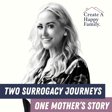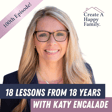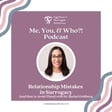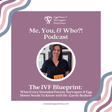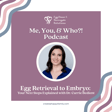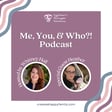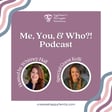
S2E19: Who? The Founding Director of The Center for Family Building
On today's episode we sit down with Lisa Schuman, a licensed clinical social worker specializing in fertility and the founding director of The Center for Family Building. Lisa, co-author of *Building Your Family: The Complete Guide to Donor Conception*, shares her personal journey with infertility and how it led her to dedicate her career to this field.
Our conversation covers the evolution of reproductive technology and the essential role psychological support plays throughout the process. Lisa offers a deep dive into the therapist's role in surrogacy and egg donation, and also provides valuable advice on discussing donor conception with children and family members, along with resources for ongoing support.
Tune in for an enlightening discussion packed with practical advice that will resonate with those that are on a journey or have a loved one that is growing there family in this way.
Takeaways
- Reproductive technology has evolved significantly, offering more options and higher success rates.
- Psychological support is crucial throughout the reproductive journey for all parties involved.
- It is recommended that Intended parents establish a strong relationship with their surrogate or egg donor, including regular communication and shared experiences.
- Finding a qualified therapist who is not affiliated with the agency is important for unbiased support.
- Open and honest communication is crucial in the family building process, and should be established from the beginning.
- It is important to consider the long-term implications of decisions made in the family building process, such as the impact on relationships and the child's understanding of their origins.
- Building a supportive community of individuals going through similar experiences can provide valuable support and resources.
- Having conversations about donor conception with children and family members should start early and be ongoing, tailored to the child's personality and needs.
Links:








